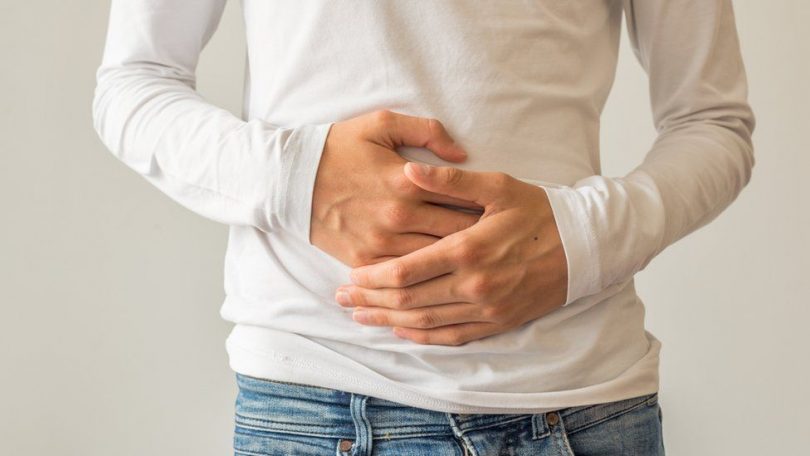How Do I Know If I’m Constipated?
If the regularity of your bowel movements has changed, but you’re not actually experiencing pain or discomfort when going to the toilet, this might be completely normal and you might not need to do anything, in particular, to “combat” it.
Here are the most effective ways to deal with constipation on the keto diet:
#1. Make Sure You’re Well-hydrated
Being dehydrated can have a direct effect on your bowel movements and make them difficult and painful.
The keto diet is diuretic (you’ll notice that you pee more than usual), so you need to make sure you’re drinking sufficient amounts of fluids to keep you hydrated.
If you’re drinking tea or coffee in the morning, you should be aware of the fact that they also have a mild diuretic effect, and that you might need to up your water intake accordingly.
You don’t need to drink excessive amounts of fluid, though, as you risk flushing your electrolytes at a higher rate than replenishing them. Use your thirst to guide you and add salt to your water to make sure you’re getting your sodium in.
#2. Make Sure You’re Getting Enough Sodium and Potassium
Electrolyte supplementation is extremely important on keto, and if you’re just starting out, you might not yet be familiar with that.
Sodium and potassium, in particular, function in a tight correlation in our bodies, and because of keto’s diuretic effect, your kidneys are excreting them at a higher rate than usual.
This means that you need to make sure you’re replenishing them, as insufficient sodium and/or potassium might result in weakness, dizziness, headaches, elevated blood pressure, and constipation.
Your sodium should be of at least 2000 to 4000 mg per day, and if you’re particularly active and/or sweating a lot, you might need more.
The recommended potassium amount you should be getting daily is of 4700 mg. However, it’s best if you get it from real potassium rich foods, such as avocado, broccoli, salmon, chicken breast and the like, as potassium supplementation can be dangerous.
For more details on electrolytes, make sure to check our Electrolytes and Supplements Guide for Keto.
If you’re constipated, making sure that you’re well-hydrated and that your electrolytes are in check should be the first step in trying to resolve the problem.
#3. Take Magnesium Supplements
Magnesium is another element that is essential while doing keto.
Your magnesium needs will not increase with this diet. However, most people nowadays are not getting enough magnesium from diet alone.
In fact, studies from 2005-2006 have shown that nearly half of the US population was deficient in magnesium (2).
Additionally, magnesium is highly effective as a mild laxative and can help with indigestion as well as a good relief for constipation.
On top of helping with bowel movements, magnesium has a calming effect on the nervous system, and constipation can actually be aggravated by stress.
When you’re starting keto, your body will undergo some biological stress during the adaptation phase.
This is completely normal, as the ketogenic diet will change the way your body is processing fat. However, magnesium can be a very helpful tool in easing that process.
According to the discussions we have seen in our keto community, magnesium supplements work wonders for most people with constipation.
#4. Eat an Adequate Amount of Fiber From Green Vegetables
Getting enough dietary fiber from fiber rich foods can greatly help regularity.
You can find fiber in all plant foods, and green vegetables are a particularly good source of it, as they are low in net carbs and will help you get other essential micronutrients in.
Some of the best vegetables for keto are, among others:
- Spinach
- Celery
- Avocado
- Asparagus
- Kale
- Bok choy
- Arugula
- Zucchini
- Mushrooms
- Tomato (technically a fruit, but very low in net carbs)
- Cauliflower
Other super high-fiber foods are flaxseed, acacia gum and psyllium husk powder.
Consuming these on a regular basis will help you have a well-balanced diet that is not lacking in essential vitamins and minerals, and will also help with regular bowel movements.
You can use them to make salads and side dishes, and they’ll also help you feel fuller for longer. So, get your spinach in!
You can also increase your daily fiber intake by taking these best keto fiber supplements.
#5. Drink a Cup of Hot (Warm) Coffee or Tea (or even water) on An Empty Stomach
If you have been constipated for a couple of days and are starting to experience unpleasant side effects, such as bloating, then drinking something mildly diuretic, such as coffee or tea on an empty stomach, can help a lot.
Moreover, drinking a hot (warm) liquid induces mild contractions in your intestines, so if you’re not a fan of coffee or tea, you can just drink some hot water.
This will also aid with digestion, can decrease your stress levels, and will help you stay well hydrated, so there’s no reason not to try it out.


Leave a Reply